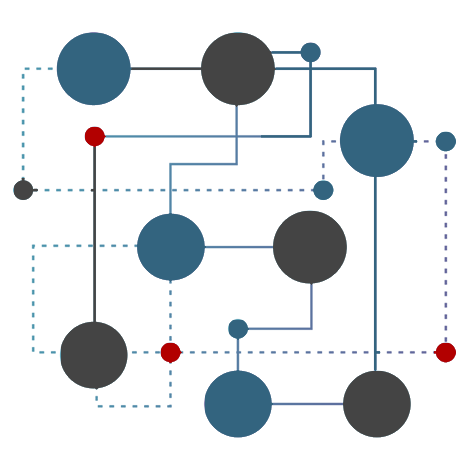
TruOps Common Language
Bring order to your fiber network assets
Organize your business’s data and promote interoperability by using a common naming system
As a Fiber Company, a consistent end-to-end view of your network and its facilities is essential for cost-effective management while rolling out fiber. Use Common Language to give your assets across your business a common name to improve inventory management.
benefits

By simplifying asset and inventory management, your network utilization is enhanced, and seamless interconnections are created. Our highly regarded subject-matter experts can help you navigate a rapidly changing telecommunications landscape with consulting, training and field support.
functional areas
|
systems engineering inventory control information standards process flow-through |
database design and reconciliation network management service activation customized project development |
Find out how to maximize your profitability and operational efficiency
Common Language Facility Codes (CLFI Codes) provide you with a stable naming scheme for describing cable, fiber, radio, analog- and digital-carrier transmission facilities. These unique codes improve communications within and among companies and are particularly useful in designing layouts and completing work orders. CLFI codes include data elements that identify a facility's designation and type as well as the channel or pair number. They also incorporate CLLI™ codes to indicate a facility's end locations.
featured customers

FAQs
- What exactly is a Common Language Location Identifier (CLLI) code?
-
A CLLI code is an 11-character, standardized, geographic identifier that uniquely identifies the geographic location of places and certain functional categories of equipment unique to the telecommunications industry. All valid CLLI codes are created, updated and maintained in the Central Location Online Entry System (CLONES) database.
- How are CLLI codes used?
-
common language location codes (CLLI Codes) are used worldwide to identify and describe three types of locations:
Network sites:
These include such network locations as central office buildings, business and commercial offices, microwave radio structures and earth stations.Network support sites:
These include such locations as international boundaries or crossing points, end points, fiber nodes, cable and facility junctions, manholes, poles and repeaters.Customers’ sites:
These include customer locations and associated circuit terminations, facilities or equipment for each. - Why are CLLI Codes and CLONES Needed?
-
The combination of CLLI and CLONES enables departments within an organization to refer to the same location in the same way, without risk of ambiguity.
This is further enhanced when sharing location information between Service Providers where mistakes communicating location information can lead to expensive work around or litigation.
